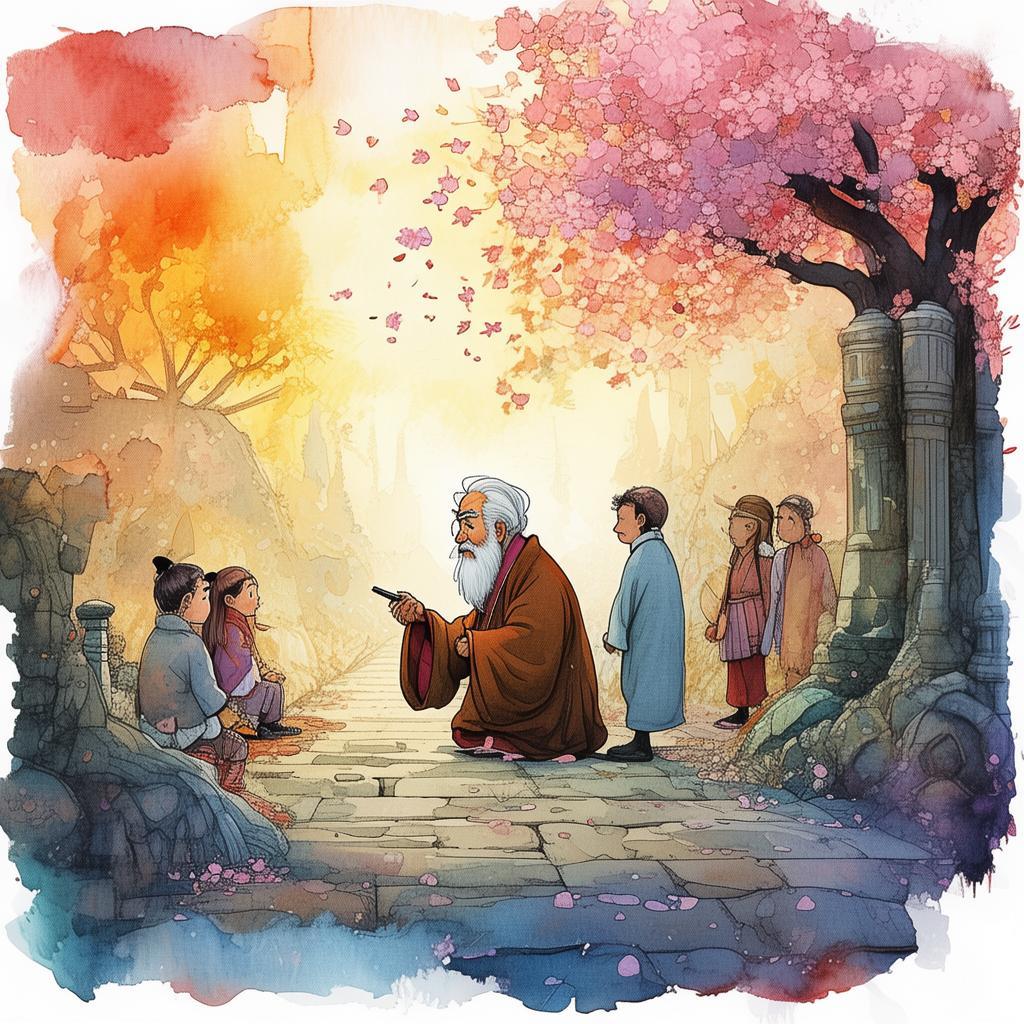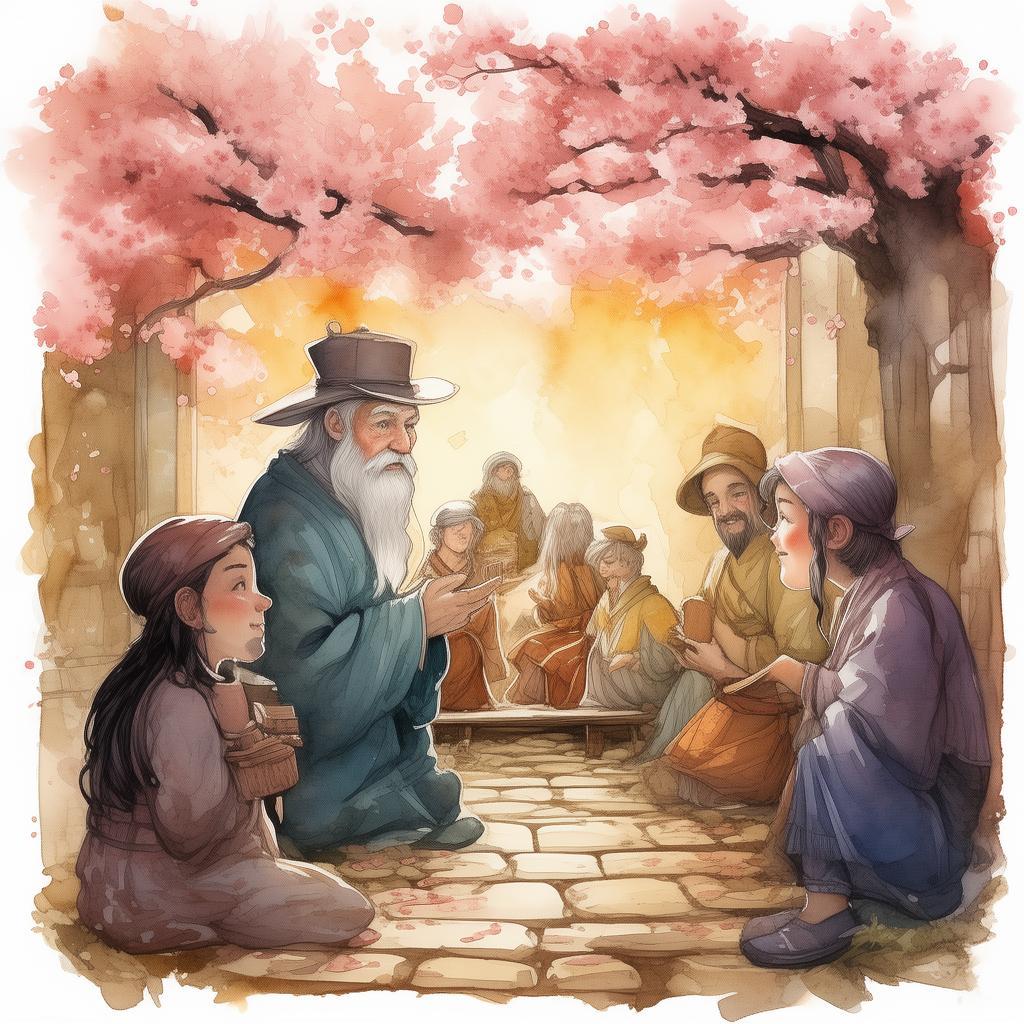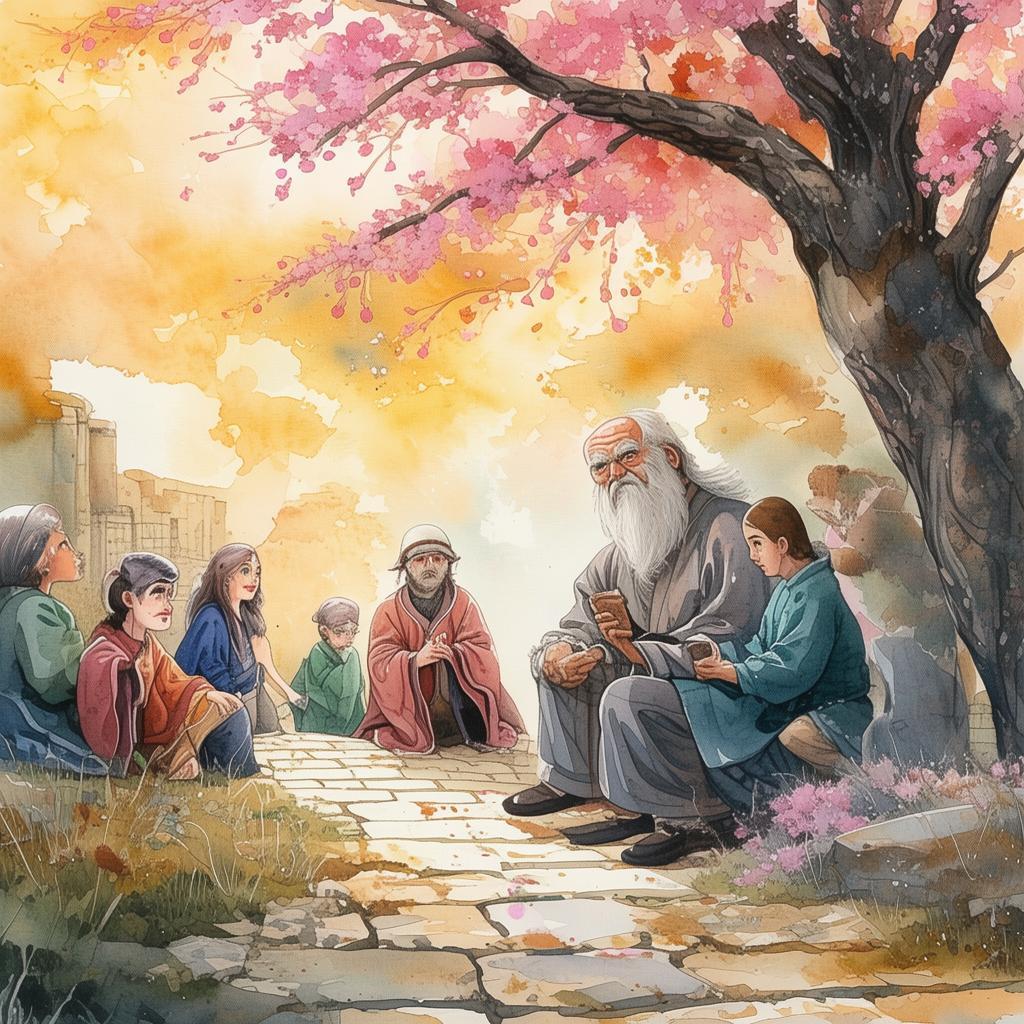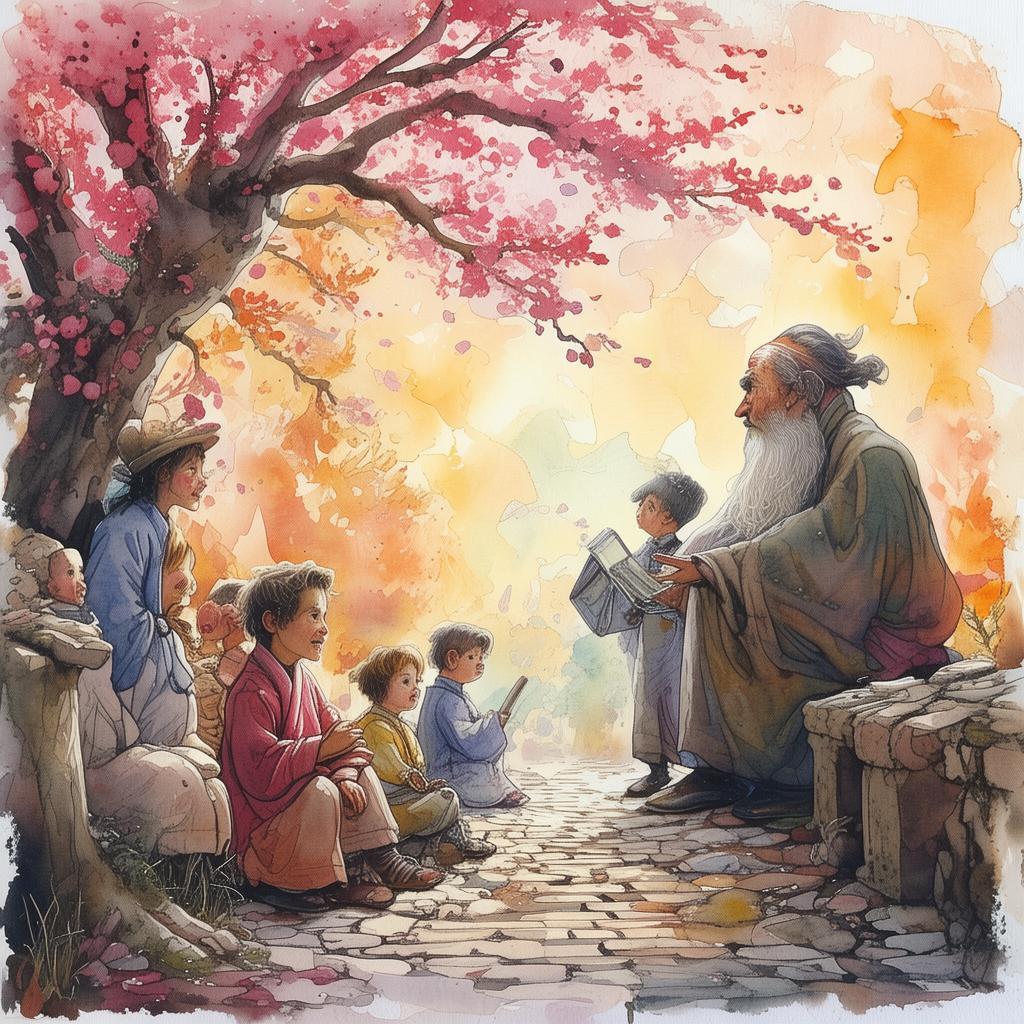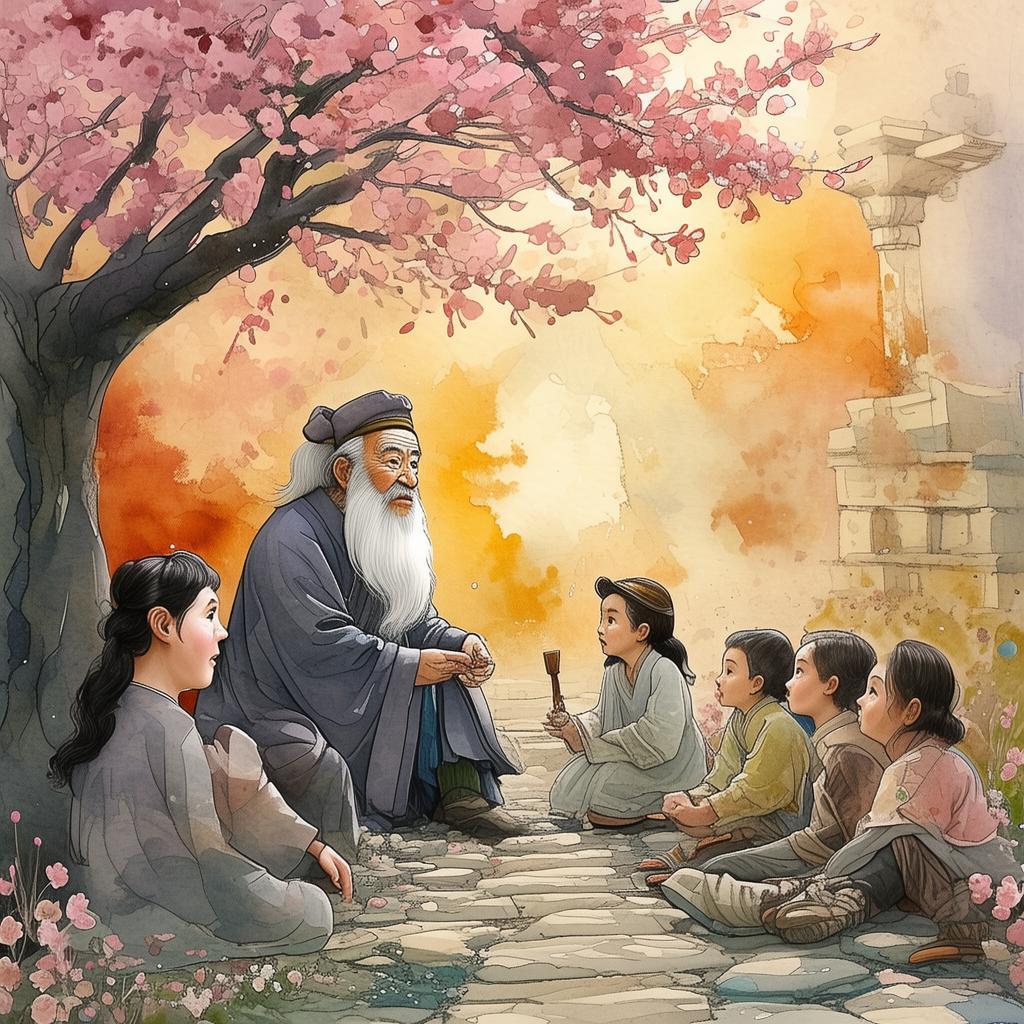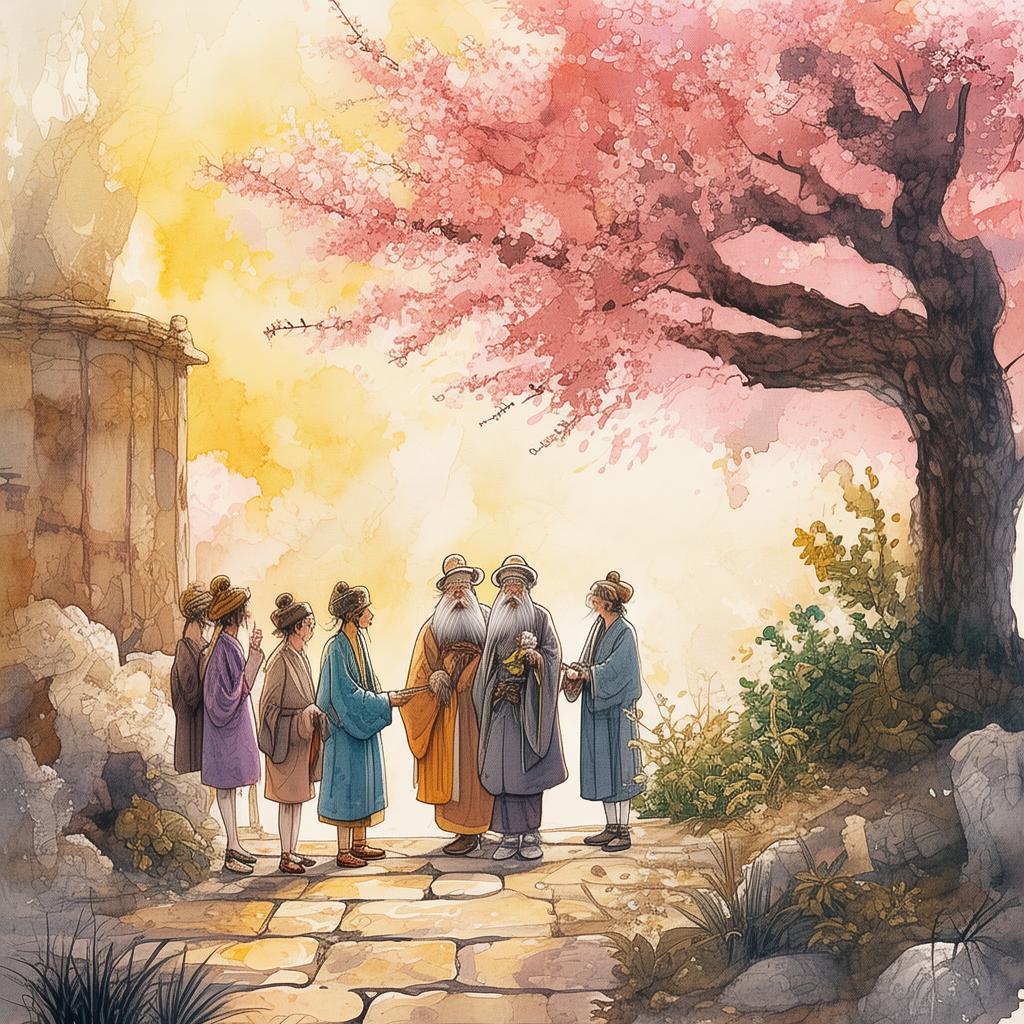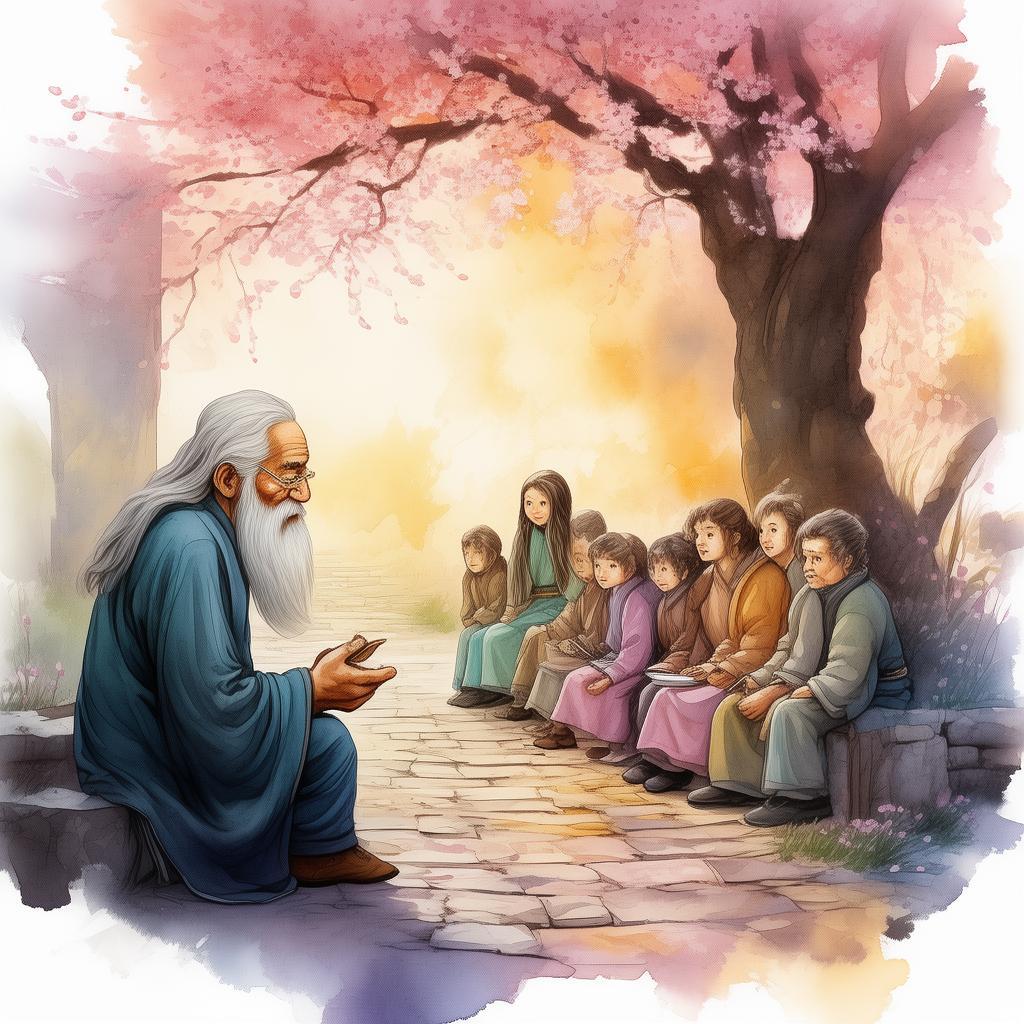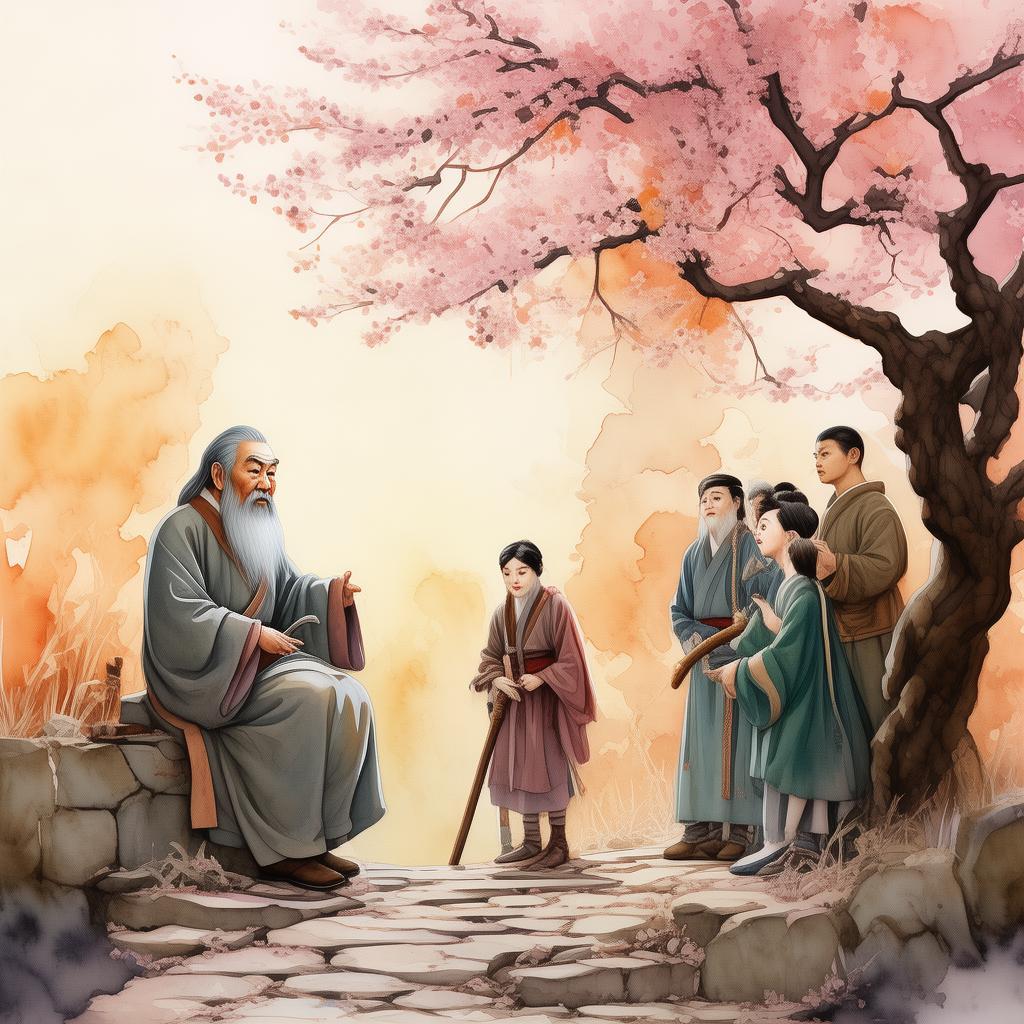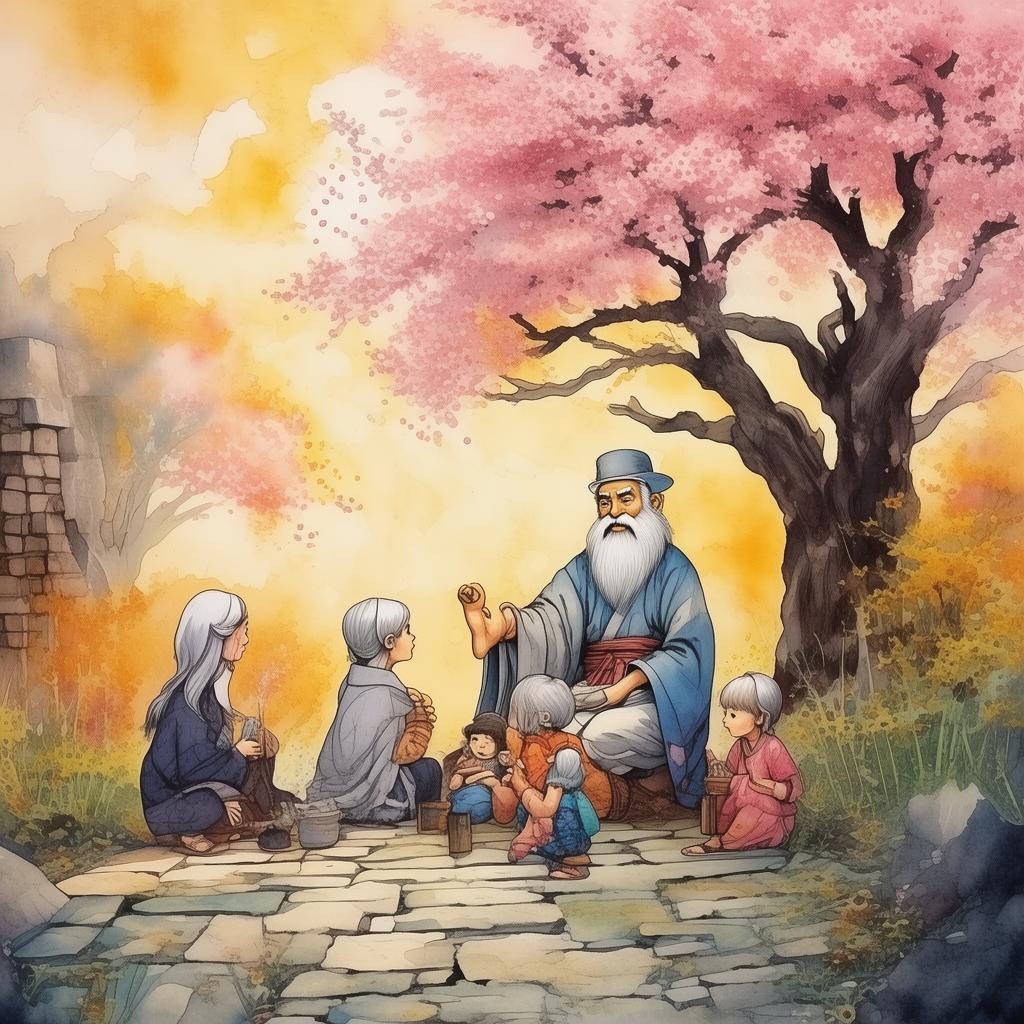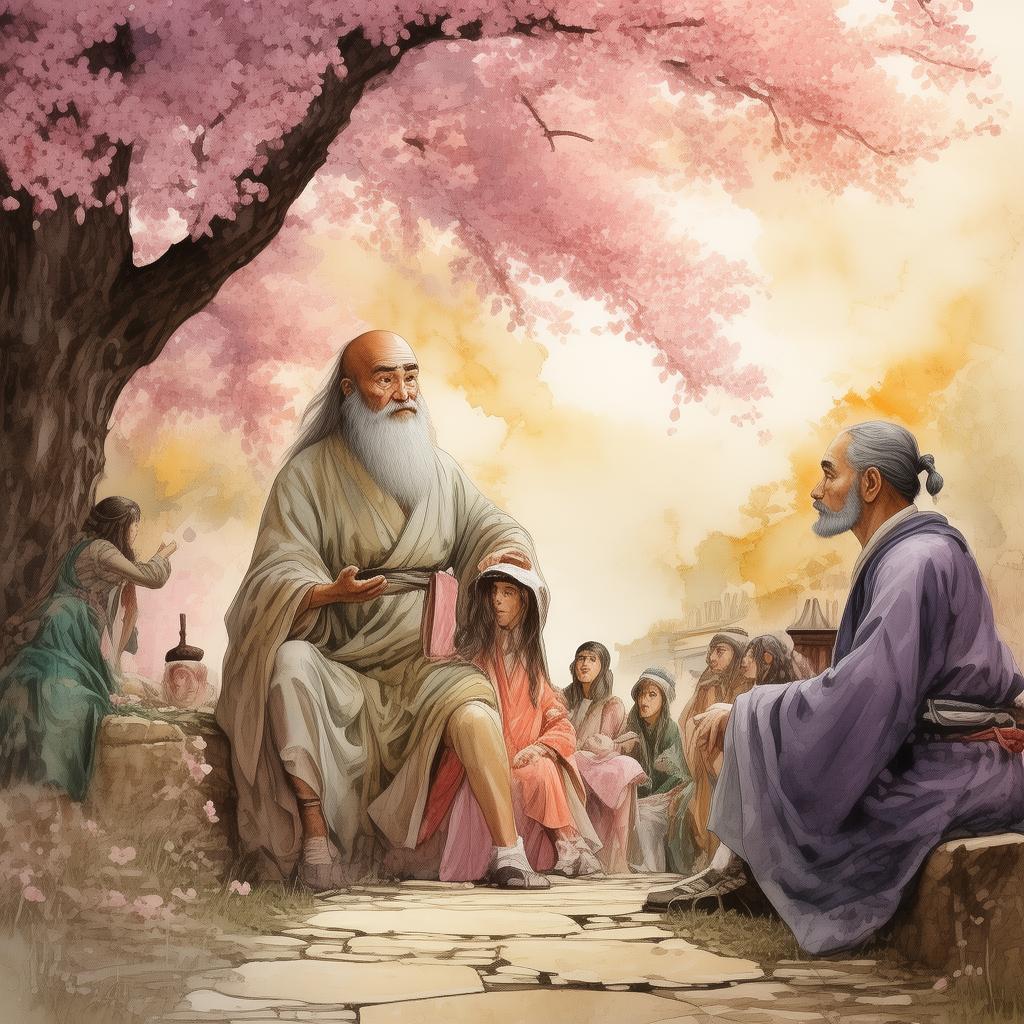Canvas of Shadows: The Painters' Dilemma
In the quaint village of Glimmerwood, nestled between rolling hills and whispering forests, there stood an old, ramshackle workshop. Inside, under the dim glow of a flickering lamp, there was a man named Eirian, a painter whose hands had the delicate touch of a poet. His canvas was the world, and with each stroke of his brush, he painted tales of life, love, and loss. But the villagers did not appreciate his art. They called it a "waste of time," a "fanciful pursuit," and worse still, a "mocking of their own lives."
The Mocking Muse, a wandering critic with a penchant for disdain, had taken a particular liking to Eirian's work. "The world is not a painting," she would say, her voice echoing through the village square. "It is not for the faint-hearted to dream in colors and shadows."
Eirian's family, however, knew the truth. They had seen the joy his art brought to them, the way it would warm their hearts when the winter winds howled outside. His wife, Lysandra, would often sit by his side, her eyes wide with wonder as he painted the vibrant hues of spring. Their son, Cael, would trace the lines with his tiny fingers, already showing an interest in the world his father created.
But the village's disapproval was a weight that Eirian could no longer bear. The Mocking Muse's words had taken root, and he found himself at a crossroads. His family needed food, shelter, and security. The village needed his skill to repair their homes, to paint their signs, and to bring a touch of color to their drab lives.
One evening, as the moon hung low in the sky, casting a silver glow over the workshop, Eirian made a decision. He would paint, but he would paint for the villagers. He would create the art they demanded, the art that would bring them comfort and security. In doing so, he hoped to earn their respect and perhaps, in time, their appreciation.
The next morning, Eirian set to work. He painted signs for the bakery, the blacksmith, and the general store. He painted murals on the walls of the village hall, depicting scenes of the village's history. The villagers were pleased with his work, and Eirian felt a small sense of satisfaction. But as the days passed, he noticed a change. The joy he once felt in painting had dimmed. The colors seemed less vibrant, the shadows less profound.
Lysandra noticed the change too. She approached him one evening as he worked on a particularly dull sign. "Eirian, what is it?" she asked, her voice tinged with concern.
Eirian sighed and set down his brush. "I'm not sure, Lysandra. I feel like I'm losing something. My art isn't mine anymore."
Lysandra took his hand in hers. "But it is. It's always been yours. Remember what the Mocking Muse said? The world is not a painting, but your art is. It's yours to create, to share, to love."
Cael, who had been listening intently, piped up. "Papa, why don't you paint the way you used to? Why don't you paint the world as you see it?"
Eirian's eyes met his son's. "You're right, Cael. I must paint for myself, for you, for Lysandra. The world may mock my art, but I will not let it mock my soul."
The next day, Eirian returned to his canvas, not with the dull colors of the villagers' demands, but with the vibrant hues of his own heart. He painted a landscape that was both real and dreamlike, a place where the shadows played with the light, where the colors danced in harmony.
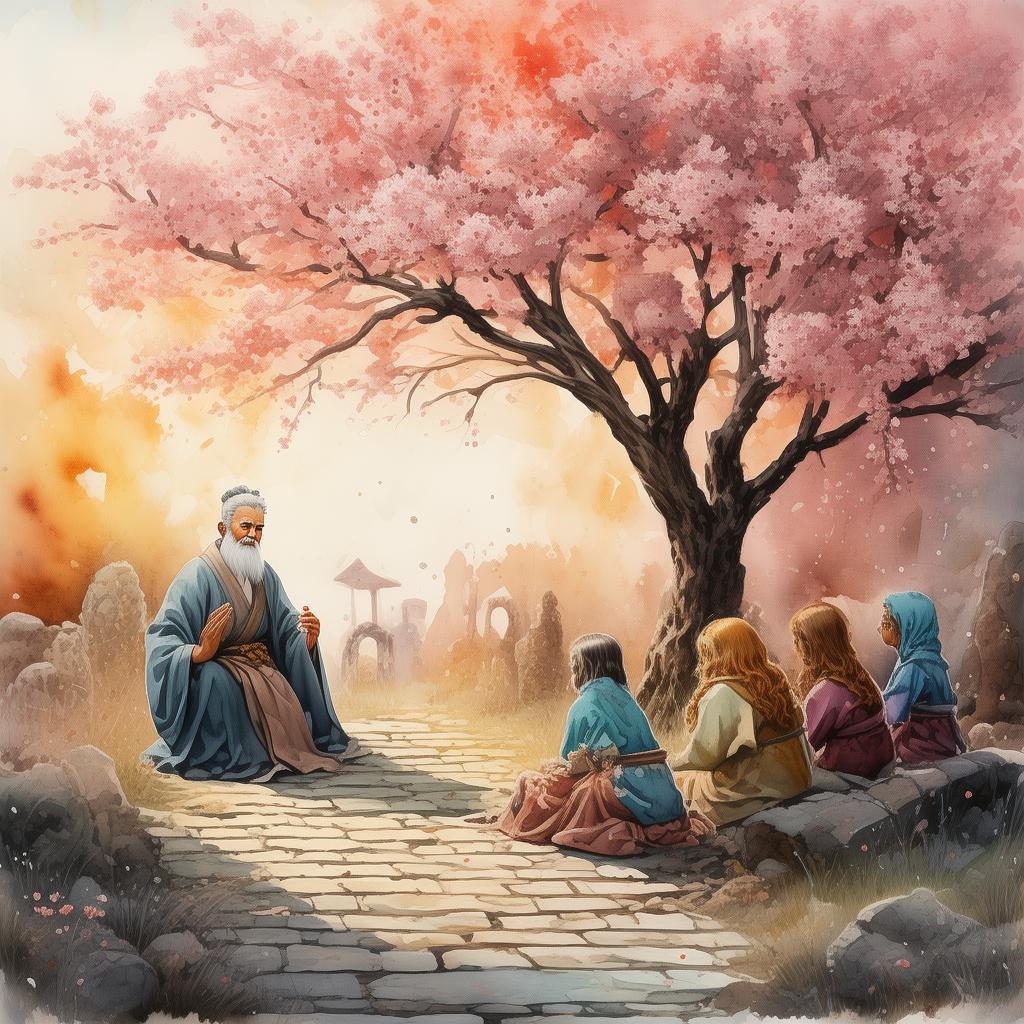
The Mocking Muse, who had been watching, saw the transformation. "This," she whispered, her voice tinged with respect, "is art."
The villagers, who had once mocked Eirian's work, now gathered to see his new painting. They were silent, then a murmur of awe spread through the crowd. Lysandra and Cael stood by Eirian's side, their eyes shining with pride.
The Mocking Muse approached Eirian. "You have found your voice, painter. Your art is not for the world to mock, but to inspire."
Eirian nodded, his heart swelling with gratitude. "Thank you, Mocking Muse. You have taught me that true art is not for the world to consume, but for the soul to create."
And so, Eirian's art lived on, not in the village hall or the general store, but in the hearts of those who saw it. The villagers, once critics, became supporters. And Eirian, once a mocked artist, became a revered creator.
In the end, it was not the villagers or the Mocking Muse who had the last word. It was Eirian's art, a testament to the resilience of the human spirit and the power of creativity to transcend the mocking of the world.
✨ Original Statement ✨
All articles published on this website (including but not limited to text, images, videos, and other content) are original or authorized for reposting and are protected by relevant laws. Without the explicit written permission of this website, no individual or organization may copy, modify, repost, or use the content for commercial purposes.
If you need to quote or cooperate, please contact this site for authorization. We reserve the right to pursue legal responsibility for any unauthorized use.
Hereby declared.
